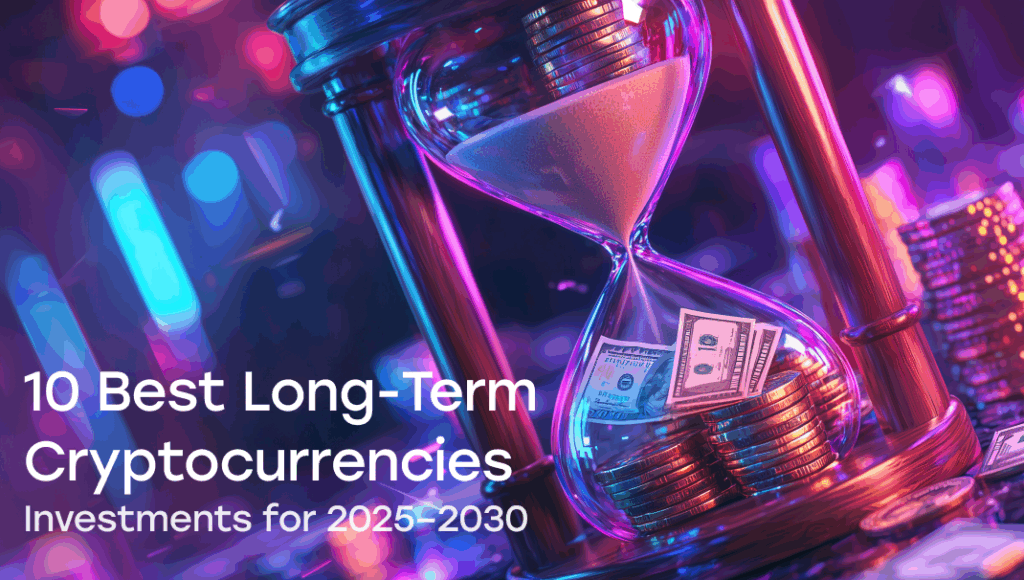share
Decentralized digital and cryptographically protected currencies are relatively new inventions. Different blockchains are trying to improve and simplify token development processes to gain a new audience and raise funds for their projects. Since the concept of blockchain is coming to the spotlight, we would like to explain the differences between modern networks and delve into the BEP2, BEP20, and ERC20 blockchain token standards.

Blockchain Networks
Let’s begin with the basics. Public blockchains on which cryptocurrencies (fungible tokens) are usually built are simply open decentralized databases. Every transaction can be recorded and checked by all the network communities spread across the world. This digital ledger is public, and everyone running the software can verify and attest to its validity. The most obvious examples of blockchains are Bitcoin, Ethereum, Binance Chain, Solana, etc.
Blockchains can be built to serve different purposes. While Bitcoin’s blockchain is more limited and functions as a peer-to-peer digital cash system, Ethereum blockchain, on the other hand, was built with the capacity to incorporate smart contracts.
Binance Smart Chain also is a blockchain, which allows you to work with smart contracts and create your own decentralized applications and digital assets. These blockchains play a crucial part in modern token development.

What Is a Token Standard?
Various crypto platforms have their own tokens traded on the network. This means that all the coins created in a blockchain are the system’s currency. There are a few technical terms used in the market to differentiate these native coins and tokens from different underlying blockchains.
Token standards define the rules and formats that we need to specify for token issuance. For this purpose, we need a so-called token standard.

ERC 20
ERC 20 is the standard name used for issuing tokens on the Ethereum blockchain, and therefore they can be easily traded and used within this space. It is believed to have a more secure decentralized verification method in comparison to other blockchains. ERC20 token standard is quite popular and is supported by many crypto wallets like MetaMask and Trust Wallet.

The Ethereum platform consists of an ETH chain capable of storing transactions and a virtual machine that supports the operation of smart contracts. It is important to understand that ERC20 is located on the Ethereum blockchain; it is completely dependent on the Ethereum network.
ERC 20 Limitations
As a drawback, ERC 20 token standard on the Ethereum chain has superior gas fees due to the security mechanism. However, the ETH network plans to implement a PoS validation model in 2022, which should lead to lower fees.

BEP 2
Binance has created its own blockchains. The first was Binance Chain, also known as BNB Chain (BC), with native tokens identified as BEP2 tokens. Binance Chain has several pegged coins like BTC, ETH, XRP, etc. It uses the Proof-of-Stake mechanism and Tendermint BFT consensus.
BEP2 tokens contain interesting features such as the possibility for interoperable deposits and multiple withdrawals. It obtains cross-chain compatibility. Simply put, you can deposit an ERC20 token to your Binance account and withdraw it as a BEP2 token and vice versa.

BEP2 Limitations
Despite BEP2 having lower fees, it is often criticized for its potential security weaknesses. It also lacks smart contract technology support, which many tokens and DApps rely on.

BEP 20
Binance launched the Binance Smart Chain network or BSC. The idea behind this parallel blockchain was to enable smart contracts to be compatible with the Ethereum Virtual Machine.
The token compatibility in the chain was designed to give users more options such as high block verification speed, cheaper transaction costs, and more.

The new autonomous blockchain provides security with the help of selected validators. It is equipped with efficient built-in double-chain communication and optimized for high-performance applications requiring fast and seamless user interaction.
BEP20 is supported by several wallets, including Trust Wallet and Math Wallet.
Binance Smart Chain uses a Proof-of-Stake Authority (PoSA) consensus and offers cross-chain services to facilitate interoperability between different blockchains. BSC’s PoSA validation model was a breakthrough in the crypto industry and raised the popularity of the Binance network.

Token Standard Requirements
Token standards define the rules for issuing and implementing new tokens. Standards usually have specific and strict requirements for the following:
- Total Token Supply
- Token Minting Process (to issue a new token)
- Token Burning Process (to reduce supply or increase demand)
- The process of conducting transactions with the fungible tokens
The standards are created to help avoid scams or fraud and technical incompatibilities between tokens. The rules for the token supply and minting of new tokens help to restrain the potential decline in the value of tokens.
The maximum supply ensures token buyers that the tokens are available in limited quantities.

ERC20, BEP20, and BEP2 Token Standard Differences
In contrast to BER2, BEP20 and ERC20 tokens are used much more actively since they provide access to various DApps and tokens based on smart contracts. BEP2 may be of interest to those who want to trade cryptocurrency using different pairs of coins.
Gas Fees
ERC 20 tokens need gas, which is the internal price to execute a transaction or contract in Ethereum. If you decide to sell your token, you will need to make a “public record”, and the transaction will be verified by the participants.
Therefore, it will be necessary to pay a certain amount of gas. ERC20 tokens’ average transaction fees could exceed several hundreds of dollars, but there’s no exact number since it’s constantly changing.

The same logic is with a transaction fee on the Binance Chain and Binance Smart Chain; however, the transaction fee for BEP2 and BEP 20 tokens is much lower than for ERC 20.
Block Verification Speed
Block Verification is a complex process. Individual transactions are combined into a block. The data contained in each block is verified using algorithms. A new block is added to the end of the blockchain, which is constantly increasing.
The data stored in each blockchain is also continuously verified.
With ERC20 tokens, the average block creation time is between 12 to 14 seconds. BEP 20 tokens are famous for having a faster block verification speed than ERC20 tokens. It takes approximately 3 seconds for each block. Mean block time for BEP2 is less than a second, but it doesn’t really add benefits due to the lack of popular features.
Security
While a crypto platform is developing its own chain, blockchain specialists define the rules for a token unit by the implementation of the token standards. Most of them are aimed at increasing the compatibility of fungible tokens that are native to different blockchains.
Equally important is the platform security mechanism. Developers are trying to detect and eliminate any kind of bugs to guarantee the security, stability, and completeness of the chain.

A common belief is that the high gas fees of ERC20 tokens are at the expense of security. BEP2 and BEP 20 token standards rely on a system of POS and PoSA consensuses, respectively.
The system is criticized for its potential vulnerability and data leaks. BSC relies on just 21 selected validators, while Ethereum has over 70,000 validators spread across the network.

Importance of the Token Standards
Understanding what is an underlying blockchain for your coins and tokens is important for many reasons. As stated previously, different blockchains are built for different purposes and with distinct capabilities.
Sending your crypto to an address from an incompatible blockchain will stop the token transfer from happening, or you might even risk losing your funds. While such cross-chain swaps are more complicated to make and demand the execution of more steps, you can still invest in a token from a different chain instead of trading directly on ERC 20 tokens.
For example, you can buy and sell BEP 20 pegged tokens, which have their price tied to the native ERC 20 counterpart, so you can still be exposed to the price fluctuations of an ETH native token price while profiting from the benefits and functions provided by the Binance Smart Chain.

The Main Aspects of Token Development
Here we would like to discuss several issues that users should understand before starting the process of BEP20 and ERC20 token development. No matter whether you invest in ERC20 tokens or prefer the Binance platform’s token standards, you should take into account the compatibility of the tokens developed on different blockchains and the features of smart contracts development. So, what points are significant to the token owner?

What Is Token Minting?
A significant issue is how to mint new tokens. In token development, minting is the process of issuing cryptocurrencies into circulation on the blockchain platform. The minting of tokens is carried out through a smart contract, which specifies the basic data that implements the business logic of this cryptocurrency.
When creating a cryptocurrency, standard parameters also include a token name, balance, token owner’s address, sender address, and a symbol (ticker). Minting usually ends with a token listing, a process of token development that involves getting the tokens listed on the exchange.

What Is a Token Balance?
When it comes to token development, a token creator must meet the requirements mentioned above. There is a token balance among them. The balance is a value essentially defined by the smart contract creator. A list of addresses and token balances a user can find on the decentralized exchange’s page.
What Is Token Development?
Currently, the demand for the development of decentralized applications and tokens based on smart contract technology is rapidly increasing. Developers are interested in how to increase the speed of block verification and minimize transaction fees at the same time.
Just like the platforms and wallets dominating the market, the users themselves are interested in a faster transaction speed.
There is a huge and constantly increasing number of cryptocurrencies today. In order to avoid any problems with them, ERC 20 and BEP 20 token standards are being established.
Qualified specialists provide various token development services. They help to create tokens. It is important to keep in mind that new tokens are also required to obey the general rules.

Takeaway
The blockchain world is promising, and, despite the fact that it has appeared recently, it already has the potential to implement incredibly interesting projects. When it comes to cryptocurrency, Binance, with its Binance Chain and BSC, offers a rich and growing ecosystem of digital assets powered by Binance DEX.
ERC 20 tokens built on the well-known Ethereum network compete with the BEP2 and BEP20 token standards in terms of utility, functionality, and security. Although the BEP2 or ERC20 tokens may have a seemingly identical counterpart on the Binance Smart Chain, BEP 20, they will have different functionality.
The BEP20 and ERC20 token standards are the most popular. For example, Trust Wallet supports both ERC20 and BEP 20 token standards, which are compatible with each other.









